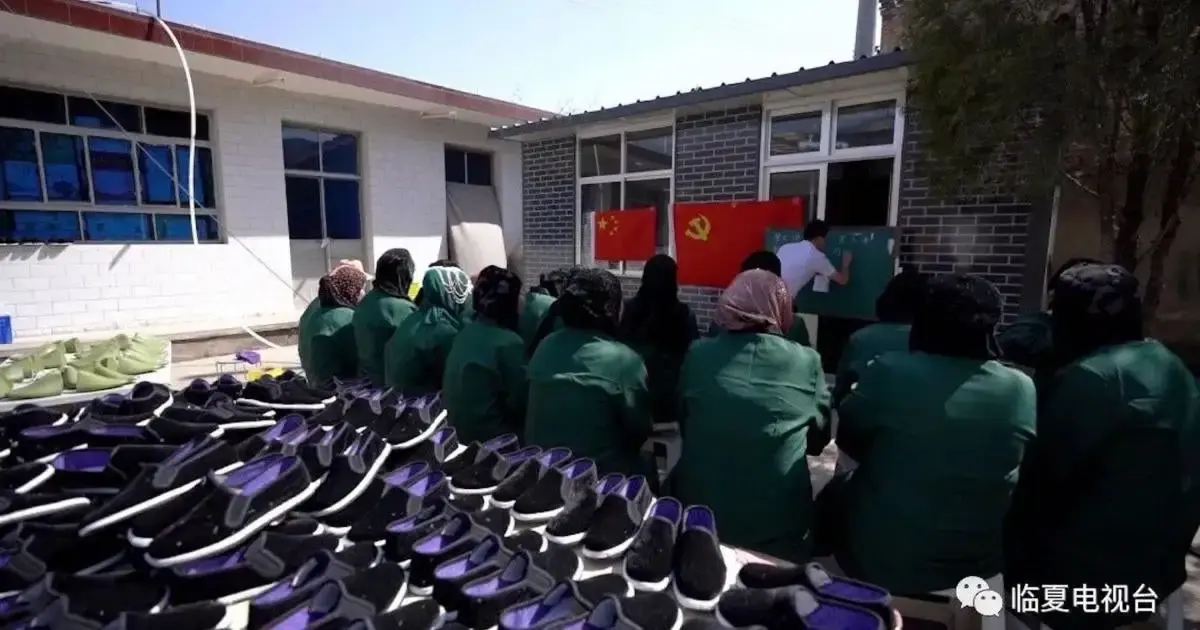- 269 Posts
- 95 Comments

 16·5 months ago
16·5 months agoGuess a human rights group in China is not possible for a lack of democracy. That aside, it doesn’t matter where the group sits, the issue is clear here. But, wait, …

 13·5 months ago
13·5 months agoAddition: the CCP is actively hiring Chinese people all over the world to control and dissent as Safeguard Defenders says in a report
The consolidation of overseas United Front networks as the providers of services such as consular community assistance may not only give them potential broad access to individuals’ private data, home addresses, and contact information but may also dangerously enhance their function of control over overseas communities and dissenters.

 4·5 months ago
4·5 months agoA friend of mine is from Romania, and I know many who lived in the former GDR (German Democratic Republic). They don’t talk often about it, but when they do their stories seem absurd, hard to believe sometimes that these things happened, and each of these stories is a reason to avoid mass surveillance imo.

 5·5 months ago
5·5 months agoThe short answer: I don’t know. There is no research investigating the impact of a decreasing Chinese GDP on the country’s environmental impact (to the best of my knowledge).
The longer answer: China is bound to reduce its environmental impact anyway. The country has a very densely-populated urban area with low-lying coastal cities. Around 20% of the population lives there, producing around 33% of the country’s GDP. A rising sea level and other natural desasters (which is what practically all environmental experts inside and outside China expect even in the short term, meaning this year) will have a devastating impact on China’s social and political stability.
The good news is that China has the potential to get its arms around that imo, if, and only if the country opens up for further investments and international cooperation. Foreign direct investments (FDI) have been contributing significantly to China’s growth in the past (around 20% of the GDP can be directly attributed to FDIs if I remember the number correctly), but FDIs also contributed indirectly by enhancing China’s technological and managerial capacities in the past. Data by China’s Ministry of Commerce shows that foreign enterprises represent just 2% of all companies, but 10% of the workforce (around 40 million jobs) contributing around 16% of China’s tax revenue and 20% of foreign trade (export and import combined).
China will need to maintain this collaboration even more in the future, as a shrinking population is barely apt to boost a domestic market. But international collaboration requires mutual respect of foreign laws, accepting fundamental human rights, and an open economy with a high degree of decentralisation and innovation. I’ll leave it to others to decide whether or not Chinese politics is heading in this direction.
Addition: all numbers are for the years 2021/2022.

 7·5 months ago
7·5 months agoNorth Korea’s human rights: What’s not being talked about (2019)
The state controls everything, and actively spies on its citizens using a vast surveillance and informer network.
North Koreans get all their news, entertainment and information from state media, which unfailingly praises the leadership. According to RSF, citizens can be sent to prison for viewing, reading or listening to content provided by international media outlets.
Internet access is available for the elite few in the capital, Pyongyang, who lead relatively comfortable lives. Others may have restricted access. The country has its own very basic intranet - a closed network which certain people are allowed to use.
“North Korea has been said to be the world’s biggest open prison camp,” said Brad Adams [Asia director of Human Rights Watch]. “I don’t think that’s unfair.”
Foreign nationals in North Korea have been arrested and detained for extended periods of time - often kept as prisoners for political reasons and used as diplomatic pawns at opportune moments.
A significant majority of North Koreans undertake unpaid labour at some point in their lives, according to a HRW report. Former students who defected from North Korea told HRW that their schools forced them to work for free on farms twice a year - at ploughing and harvest time - for one month at a time.
Discrimination against women very much exists, but “there isn’t a way to measure inequality in the North like how you measure the wage gap between males and females”, says Arnold Fang [a researcher from Amnesty International]
Reports are also rampant of women facing torture, rape and other sexual abuses while held in detention facilities - and of widespread sexual abuse in the military.

 2·6 months ago
2·6 months agoThis is true for more or less all international and national agencies (World Bank, OECD, CIA, all EU agencies, …). Their reports are extremely good and accurate, but the problem is that politics doesn’t appear to be listening.

 10·6 months ago
10·6 months agoSee, you don’t know and try to force your narrative on others. And if we actual Taiwanese people tell you no, you mansplain it to us. This is why I hate people like you.
If there’s one here who forces narratives on others than it is you. Your comment shows little respect of others, you even offend them. You obviously do not act here in good faith.

 5·6 months ago
5·6 months agoBeijing could have invested all this money for the Chinese people and its economy rather than for a disinformation campaign. It would be better for Taiwan, China, and the rest of the world.

 5·6 months ago
5·6 months ago[…] Hamas is a genocidal organisation […]
Who disputed the claim of Hamas being a genocidal organisation? They are. But this has nothing to do with the linked article and the fact that Israel is committing genocide on the Palestinian people as well.
Is this the international law in the 21st century? An eye for eye? (The answer is: no, it isn’t, because an eye for an eye makes the world go blind.)
I’m wondering whether you and others here will be tired of this whataboutism.

 20·6 months ago
20·6 months agoWe even used to be subscribers of the Economist for a long time, but they have made a complete u-turn over the years. In the meantime they appear to just echo mostly pro-establishment opinions with weak research and an often weird approach of interpreting data and issues. So this does not come as a surprise unfortunately.
South Africa levels accusations of ‘genocidal conduct’ against Israel at world court are different as we know.

 9·7 months ago
9·7 months agoThanks, didn’t know that. It’s corrected now.
From your comments one can easily infer that you didn’t even click the link.
Is this before or after the Hamas war crimes tribunal?
They can do that before or after, but I hope they do both soon. There is no difference between Hamas and Israel’s right-wing government led by Netanyahu.
Yes, I fully understand what you say. You mean this, but honestly, does it add any value?
It really helps if you read the article before posting.

 1·8 months ago
1·8 months agodeleted by creator

 1·8 months ago
1·8 months agoThere is an article in the Washington Post about it
The scope of the intrusion, while broad, makes sense, analysts say, given that China wields great leverage over Cambodia, where Western officials say it is building a Chinese naval facility for the exclusive use of its military. The facility would become China’s first such overseas outpost in the Pacific — a significant element of a strategy to build a network of military facilities around the world in support of its aspirations to become a true global power.
"As China and Cambodia continue to deepen their cooperation, it becomes all the more important to China to collect intelligence on Cambodia,” said Joe McReynolds, China Security Studies Fellow at the Jamestown Foundation. “If you’re [Chinese President] Xi Jinping, the last thing you want is to be blindsided by political developments in Cambodia.”


















@Sunforged
There are many places. One is Ireland.